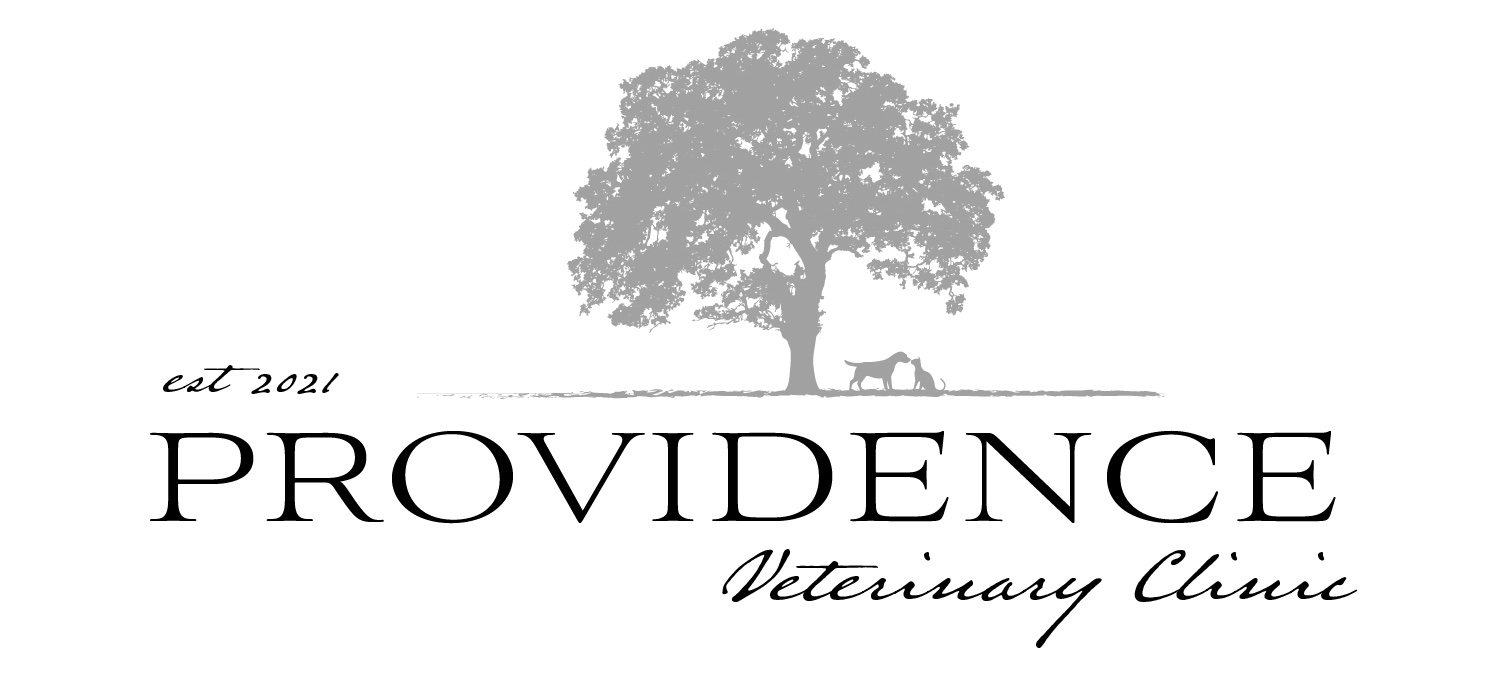Quality Service
Our Services
We offer a large range of services at Providence Veterinary Clinic. Learn more below.

Full-Service Veterinary Care in Marietta, GA
Whether it’s a routine wellness exam or a surgical procedure, we’ll be there to ensure that your pet gets the highest quality care. Our dedicated veterinary staff takes every precaution to ensure that your pet receives care in a clean and calm environment. We believe that every visit to comes to see us should end with a happy pet and happy pet parents.

Digital Radiographs
X-rays are an important diagnostic tool used to identify what is going on within your pet. An X-ray allows us to look within the body for abnormalities that we would not be able to see otherwise. Radiography can be used to evaluate almost any organ in the body, including the bones, heart, lungs, intestines, liver, and bladder, to name a few. Some of the most common issues we find with X-rays include broken bones, heart failure, arthritis, pneumonia, intervertebral disk disease, and various tumors, and bladder stones.
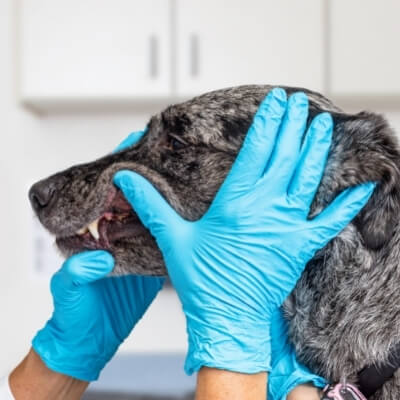
Dental Radiographs
We are proud that we have the most up-to-date equipment to treat dental disease, including digital dental X-rays. This allows us to detect if there is any disease beneath the gum line that we would not be able to see otherwise. We are often able to see undetected abscesses, broken teeth, resorbed roots, retained roots, and more thanks to dental radiographs.

Ultrasound
Ultrasonography is a type of diagnostic technique that uses ultrasound waves to produce an imaging study. This means that when we perform ultrasonography, we can see internal images of the patient’s body. Unlike some other imaging studies, like X-rays, ultrasonography does not use radiation. Instead, ultrasonography uses high-frequency sound (ultrasound) waves to create a picture of what is inside your pet’s body. Ultrasonography is a completely non-invasive, painless way to diagnose and evaluate many common diseases.
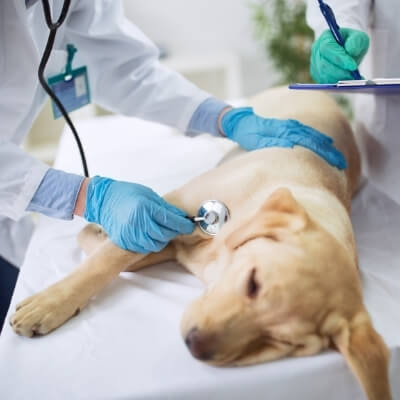
Routine & Emergency Surgery
At Providence Veterinary Clinic, we can perform almost any surgery your cat or your dog could need or find the right specialist to help with the operation. Our experienced veterinarians provide many surgical services at our clinic, ranging from routine to advanced procedures. We do occasionally refer cases to specialists (board-certified veterinary surgeons) to perform complex operations when advanced equipment or training would be beneficial.
Our veterinary team takes every precaution so that your pet receives the highest-quality care. We perform a physical exam and pre-anesthetic testing before surgery, monitor your pet during surgery, and provide appropriate pain medication to keep your pet comfortable during recovery.
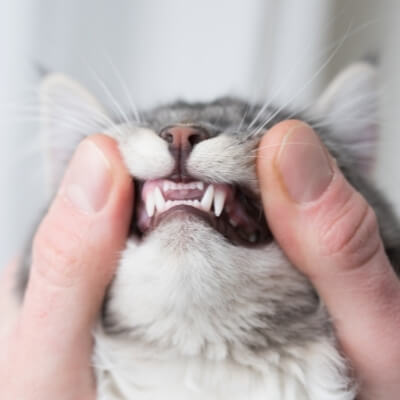
Dentistry
Just as it’s important for you to see a dentist regularly, it’s important for dogs and cats as well. Your pet’s oral health is directly connected to their overall health. Signs of dental disease include bad breath, loose, broken, or missing teeth, yellow or brown teeth, red, inflamed or bleeding gums, difficulty or pain when chewing, pawing at the mouth, and excessive drooling. If you notice any of these symptoms, please contact our team, and we’ll be happy to help.
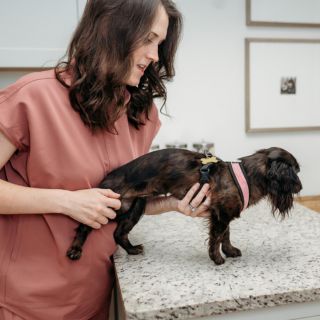
Wellness & Illness Visits
At Providence Veterinary Clinic, we believe annual wellness care is imperative to keeping your pet happy and healthy! Your pet’s health is important and preventive care is necessary. We recommend wellness exams, keeping your pets on a vaccination schedule, and working with us on all facets of wellness care.
During your annual physical exam, your veterinarian fully examines your pet and discusses vaccinations and ongoing wellness. Just like you have wellness visits with your doctor, it’s important that your pet does the same. During these visits, our team will spend time examining your pet from nose to tail.
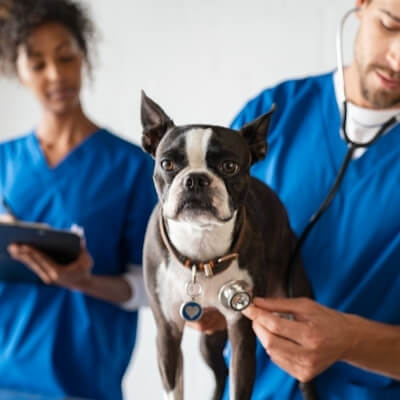
Hospitalization
If you notice your pet dealing with diarrhea, vomiting, physical weakness, or trauma, we’re equipped to have them stay with us for extended care. While here, they will receive a full examination, be monitored by our veterinary team, and given the best possible care to get them back to perfect health.
While your pet is with us, our team will call with any news or updates to your pet’s condition, so you’re fully aware of everything going on with their health.
Pet hospitalization can be a stressful time for pet parents, and we want you to know that our team will be here every step of the way when an unexpected health event occurs.
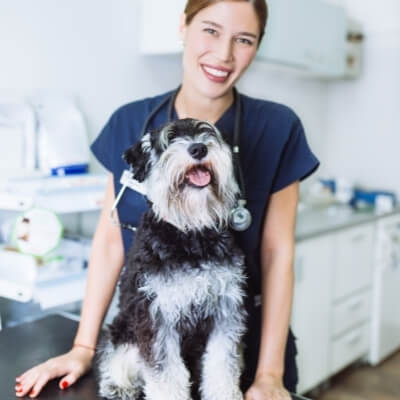
International & Domestic Travel Certificates
Depending on the destination, there may be vaccines or tests that are needed for your pet to enter the country. Every county has different requirements and different timelines. Unfortunately, these timelines and requirements also frequently change.
Most countries also require specialized documentation and an Internal Health Certificate issued from a USDA Accredited Veterinarian, verifying that your pet is healthy for travel. These documents then have to be endorsed by the United States Department of Agriculture – Animal and Plant Health Inspection Service (USDA-APHIS).
Additionally, airlines also have their own requirements and paperwork, not to mention your furry family member may need a little sedative to help make the travel and flight less stressful.
We encourage anyone that is considering international travel to visit the USDA Pet Travel Website.
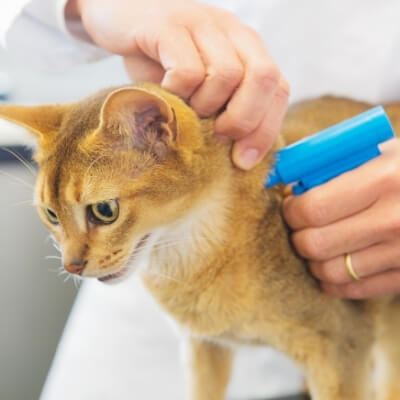
Microchips
Microchips are tiny electronic devices, about the size of a grain of rice, that use radio waves to transmit identification information. Pet microchips store unique identification numbers that show once the chip is scanned. This number can be reported to the appropriate microchip company where the owners’ contact information is stored. Microchips are made of a material that is compatible with body tissues, so rejection and infection at the site of microchip injection are rare.

End-of-Life Care
Saying goodbye to your beloved friend will be one of the hardest things you have to do—you do not have to do it alone. We are here for you. The team at Providence Veterinary Clinic is honored to be a part of the bond you share with your friend, and we will share your burden and celebrate your memories. We are here to provide your family and beloved pet with love and support during their palliative/hospice care days and then to offer a peaceful transition from this life when the time comes.
Our doctors offer multiple modes of easing pain and adapting environments and care to keep your friend comfortable and by your side in their last months, and then we will be by your side as together we decide if kind, painless euthanasia is the gift that your pet needs. Euthanasia is a selfless act of love that you give your pet – the peace of seeing them quietly slip away in your arms is a final gesture of compassion. Your pain will deepen as you say goodbye to your friend, but their pain will be no more. Comfort, peace, and dignity is a gift we can give our pets after the lifetime of unconditional love they have given us.

In-House Blood Work
Blood work is usually a combination of a complete blood count (CBC) and a blood chemical analysis. Blood work is a basic evaluation tool. Pets, particularly those in their senior years, should have a CBC at every annual examination. Blood work allows a veterinarian to monitor the progression of a pet’s disease.
Routine blood tests are run before anesthesia and surgery to make sure that your pet does not have a disease or illness that would make anesthesia or surgery a significant risk. This lab work is very similar to the “pre-op labs” that your doctor would recommend before you have any procedure performed on yourself.
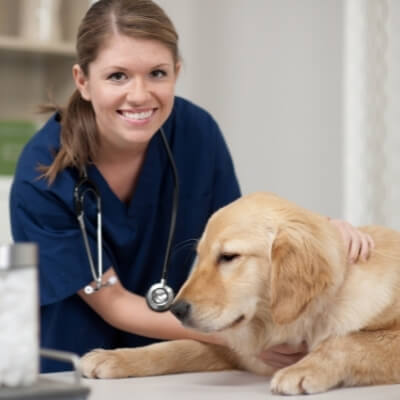
Fecal Exams
Fecal tests provide insights regarding any intestinal parasites that may be inhabiting your pet’s body. Intestinal parasites are organisms that live, grow, and feed in the intestinal tract taking away nutrition and, in severe cases causing illnesses such as anorexia, diarrhea, vomiting, anemia, or even death. The best way to detect parasites is by testing a fresh fecal sample for the parasite’s eggs. Treatment may vary depending on the type of parasite found, but it usually consists of oral medication.

Urinalysis
A urinalysis test checks for levels of specific chemicals in your pet’s urine. Abnormal levels of certain chemicals can be a sign of particular illnesses. The urinalysis screens for imbalances that can be an indication of kidney disease, kidney infections, bacterial infections, urinary tract disease, diabetes mellitus, diabetes insipidus, urinary bladder disease, auto-immune disease, Cushing’s disease, prostate disease, and hepatitis and liver conditions.
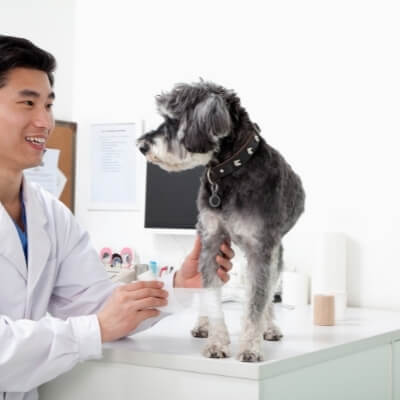
Wellness Blood Work
Yearly tests will check your pet’s organ functions and help define the general health of your pet, including potential problems that are often not visible during a physical exam. Obtaining baseline blood work and a urine sample when your pet is healthy provides invaluable baseline information that we can compare to whenever your pet is sick in the future. Regular testing also allows for early detection and monitoring for changes, especially as they age.

Reproductive Services
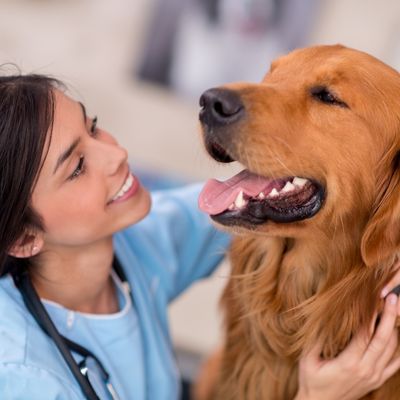
PennHip
Canine Hip Dysplasia (CHD):
- Is the most commonly inherited orthopedic disease
- Leads to hip arthritis causing pain, stiffness, and diminished quality of life
- Has no medical or surgical cure
- Afflicts more than 50% of the dogs within some breeds
- Clinically affects large-breed dogs more severely than small-breed dogs.
This can be done as early as 16 weeks of age! It does require the patient to go under general anesthesia.
